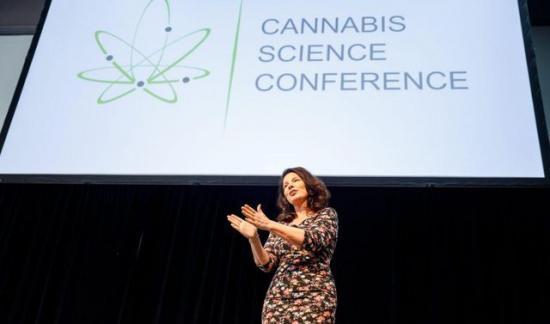The Cannabis Science Conference Grows to New Levels
Conference organizer Joshua Crossney provides a brief overview of the key take away messages presented at the 2018 Cannabis Science Conference.
The 2018 Cannabis Science Conference commenced with a sold out Canna Boot Camp at Chalice Farms on Monday, August 27, which was hosted by 13 companies. Attendees rotated through five zones, covering everything from cultivation and genomics to milling, extractions, sample preparation, analysis, and edibles manufacturing. Participants were thrilled to see actor and comedian Jim Belushi working alongside Dr. Sue Sisley at the Boot Camp. Dr. Scott Kuzdzal, Vice President of Marketing at Shimadzu, elaborated on this year’s preconference workshop, saying it was a huge success. “The Canna Boot Camp has grown so large that all of us vendors are already considering new opportunities to improve the event for next year, including travel to a cannabis cultivation site and optional tracks on analytical techniques with a greater focus on education, not demonstrations,” he said.
Highlights from the Conference
On the opening day of the conference, throngs of attendees amassed at the registration counters and gathered for the analytical track’s keynote address by Dr. Dedi Meiri of the Technion Institute in Israel. This keynote, as well as the one delivered by Dr. Ethan Russo of the International Cannabis and Cannabinoids Institute on Wednesday, set a tone of inspiration and accomplishment that together we are advancing cannabis science in an impactful way. Dr. Meiri described recent advances in profiling the phytocannabinoid compositions of differing cannabis strain varieties that are used for clinical purposes, and also explained how this diversity of compounds affects the outcomes of cannabis-based treatments.
Attendees compared notes on “must-see” sessions and split their time between presentations within the analytical, medical, and cultivation tracks. Presentation after presentation and panel after panel, the excitement level and information sharing grew to a very powerful buzz that permeated the meeting rooms and exhibition floor. “There was an amazing energy level at this year’s show, a coming together of medical, analytical, and cannabis experts that felt like an extended cannabis family,” said Tracy Ryan, a keynote speaker from the medical track. Ryan’s talk delved into her journey from mother to CEO of Cannakids and SavingSophie.org.
Plenary Address
On Tuesday afternoon, the analytical track room filled for a phenomenal plenary address entitled, “My Journey from Cancer to Cannabis” by television and film star Fran Drescher. Drescher explained her journey pre-stardom, through her celebrity with The Nanny to her battle with, and defeating of, uterine cancer. As she told her story, she quickly came to key messages that resonated with the entire Cannabis Science Conference congress: Rather than focus on a cure for cancer, we should be looking at the causes of cancer and work to systematically eliminate them. She explained how causation of chronic, long term inflammation is the name of the game, stating that how we live equals how we feel. We must each work to eliminate the toxins by detoxifying the environments that we live in, starting with our homes.
Drescher also explained that the cause of cannabis prohibition was big business greed that went to Washington with deep pockets to protect their petroleum and plastic based interests. “All these years that we could have been evaluating the efficacy of cannabis as a medicinal got lost, and now, only now, can we begin to really start understanding the versatility and the miracle of this plant,” she said.
Drescher’s final message was clear: We as consumers ultimately have great power and we are at a great precipice of a new dawn in human history. This is a new frontier, and everybody wants in on the big, gold rush in cannabis. “Wherever there is opportunity, there are opportunists. Where there is capital, there’s capitalists,” she explained. “And where there is greed, there is irresponsibility, there is a lack of vision, there is lack of planning, there is lack of respect for the user, the plant, and the planet. And if how we live equals how we feel, and this plant can help support our bodies to feel better, then it is up to us to ensure that this plant is organic, grown in healthy soil, under the sun with the fresh air—a happy, healthy, organic plant!”
A lot of people are compromising that vision for a healthy plant, and Drescher declared that it is up to us, the customer, to make sure that what we ask for, what we buy, what we grow, what we manufacture, and what we present to the American public is not echoing the mistakes of the industrialists of the last century. We must all see ourselves in this bigger responsibility and that how you live equals how you feel. “This is too special a moment, this is too precious a gift from God—a miracle plant,” she said. “Don’t disrespect it, don’t disrespect the planet, don’t disrespect the planet by going low, go high!”





















